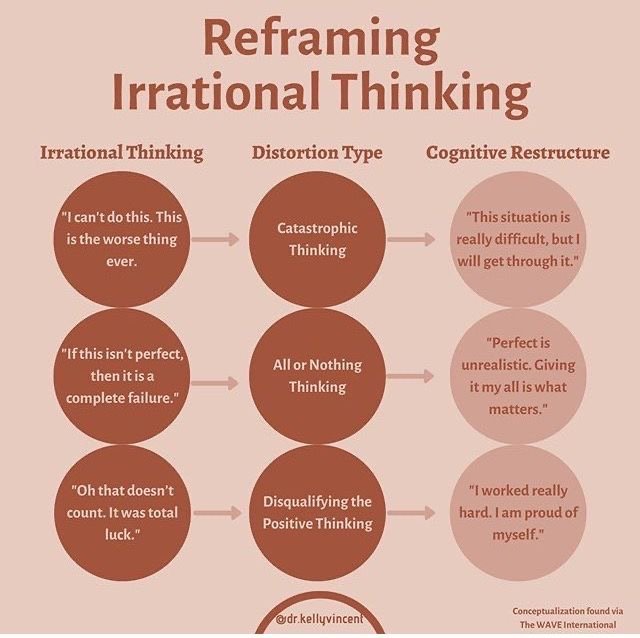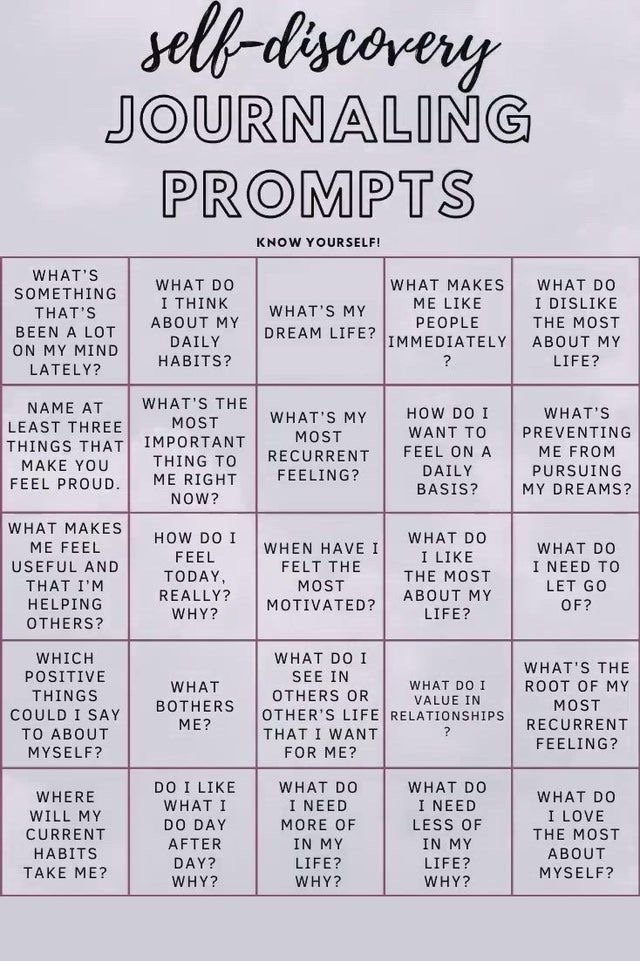Reframing Irrational Thinking
Types of Self Care
Self Discovery Journal Prompts
Simple 5 Senses Grounding Technique
You Don't Have to Understand...
Burnt Out?
Reminders For When You're Feeling Low
Challenging a Negative Thought
Distress Tolerance: Improve
Farewell to 2021...
Supporting Someone with Depression
Self Care...
Inner Critic vs. Self Compassion
Anxiety Coping Statements
How To Connect With Your Child Using The Love Languages
How To Deal With Stress and Depression During The Holidays
How to Deal with Stress and Depression During the Holidays
Medically reviewed by Timothy J. Legg, PhD, PsyD — Written by Jennifer Purdie — Updated on December 13, 2019
Understanding the Holiday Blues
The holiday season can trigger depression for a number a reasons. You may not be able to make it home for the holidays, or you may be in a rough financial situation. If you’re going through a difficult time, it can be tough to see others with extra joy in their lives.
Seasonal depression is more common than you may think. Approximately 14 percent of Americans experience the “winter blues.”
These blues can be especially overwhelming during a time of change. Christmas and New Year’s Eve often present challenging demands, from never-ending parties to family obligations. These events can come with higher levels of stress.
If you’re dealing with feelings of stress or depression, know that you aren’t alone. There are ways to manage your symptoms and get the help you need.
What are the symptoms?
The most common symptom of the holiday blues is amplified depression. This is true of people who may or may not being dealing with depression already.
You may be experiencing a bout of seasonal depression if you feel like simple activities are more difficult than normal. This includes getting out of bed, making dinner, and taking a walk.
Other symptoms of the blues include:
feeling more tired than usual
losing interest in things that used to bring you joy
having trouble concentrating
9 ways to manage the holiday blues
There are many things that can contribute to the holiday blues. Whether it’s something as simple as overscheduling yourself or a deeper emotional need, it’s possible to work through your feelings and start anew.
Here are nine ways to deal with the holiday blues:
Limit alcohol – Limit your alcohol intake, and try not to keep it readily available around your house. If you’re attending a party and you know alcohol will be accessible, limit yourself to one or two drinks. Drinking to excess can affect your mood and amplify any negative feelings that you may have.
Get plenty of sleep – Try to go to bed at a specific time each night. Being well-rested can improve your mood and help you feel ready to take on the day.
Learn to say “no” – Overscheduling and not making time for yourself can lead to emotional breakdowns. Learn how to say “no,” and stay firm on your decision.
Be open to new traditions – You may have an image of what you think the holiday should consist of, and this may not be what’s actually happening. Instead of holding on to what the holiday should have been, allow new traditions to unfold.
Get support when mourning a loved one – If you’ve experienced the loss of a loved one, the holidays can be especially tough. Although it can be tempting to isolate yourself and grieve, it can be beneficial to spend time with your friends and family. They can support you through this difficult time.
Spend time with your loved ones – Instead of spending the holidays alone at home, get your friends or family together for a dinner party at your place. The more the merrier! You can spruce things up with lively decorations and add welcoming floral arrangements to your living spaces.
Exercise regularly – Plug in your headphones and pop out for a walk around the block a couple of times a day. A quick 10-minute walk will get your heart rate up and release mood-boosting endorphins.
Do something fun to get over a recent breakup – It can be difficult to be alone when you’re nursing an aching heart. Instead of sitting at home, fill up your calendar with activities. Websites such as meetup.com offer group outings, such as dinners and dancing, almost every night of the week.
Avoid overeating – Before heading out to social events, fill up on veggies. You can even fill up a small sandwich bag and snack in the car. Holiday outings can often lead to overeating, which can affect your mood and overall well-being.
The holidays can be an especially difficult time for older adults. If you’re unable to be with friends or family this holiday, look for volunteer opportunities that allow you to be around others. Some non-profits will even come pick you up if you’re unable to drive.
7 Tips To Manage Stress & Mental Health During The Holidays
Ten Tips for Enjoying the Holidays
Ten Tips for Enjoying the Holidays
Follow these 10 tips to make the most of your holiday season.
Your feelings about the holidays are very personal. They can cause us to feel happy, sad or ambivalent. The holidays can also cause stress because of:
Overscheduling, overindulging and overspending
Too much time with family or not enough
Multiple caregiving roles
Personal or family illness
Work demands
Expectations of what you should do
Seasonal affective disorder or depression
No matter how you feel, the following tips can help you enjoy the holidays as much as possible.
Reflect on what is important to you during the holidays. This may change over time, but thinking about what you want for this holiday season will help you choose more intentionally about who you would like to spend time with and how you would like to spend the time. It’s hard to have a meaningful holiday if you don’t determine ahead of time what will give it meaning.
Make a plan as early as possible about what you will do during the holidays. Try to plan at least one activity that is important to you for each holiday that you celebrate. Feel free to initiate activities with family and friends. Consider volunteer activities. Making a plan well in advance can give you something to look forward to and help you feel a greater sense of control.
Communicate clearly how others can assist or support you. Accept offers to help shop, wrap or cook. Some people may not know how best to help, especially if your needs and desires have changed from last year. Most people are happy to help as long as they understand clearly what you want and they have enough time to provide the support.
Realize the holiday season is a marathon, not a sprint. In other words, pace yourself. While extra social gatherings can be exciting, you don’t want to compromise your physical or mental health by doing too much. Acknowledge that you cannot do everything for everyone. Practice saying “no” without guilt. Allow yourself the opportunity to grieve the loss of giving up some activities.
Maintain a healthy lifestyle. Try your best to make good food choices and relax to restore energy. Your endurance will be better if you can stick to your daily routine as much as possible, including exercise.
Manage your spending. It’s easy to feel the pressure of consumerism during the holidays. Decrease the financial stress by making and sticking to a budget. Thoughtfulness need not come with a hefty price tag. Gift solutions include: reducing the number of gifts; initiating a gift exchange; giving to a favorite charity in family members’ names; and providing gift certificates for babysitting, snow shoveling, a home-cooked meal, or time together. Gift cards can also be purchased for small amounts and the receiver will enjoy thinking of you as he or she enjoys a cup of coffee or music download “on you.”
Monitor alcohol and medications – individually and together. It’s easy to overindulge in alcohol during the holidays. Moderation is key so that your balance and emotional well-being are not negatively impacted. If you do not usually drink alcohol, consider beforehand how alcohol and your medications may interact, especially if you’re taking a new medication or an increased dose. Maintain your daily medication schedule. Missed doses can cause you to feel less than your best or, worse, cause a medical issue that requires emergency care.
Manage your expectations for family gatherings. When multiple generations and multiple families celebrate together, it can be challenging to feel heard and understood. Be clear about what you need the most and flexible about the rest.
Think ahead about stories or observations from the past as a family that you’d like to share. You may know how a specific family tradition began or have a funny story to tell about the holidays when you were a child.
Reflect on what went well this holiday season and improvements you would like to make for next year.






















